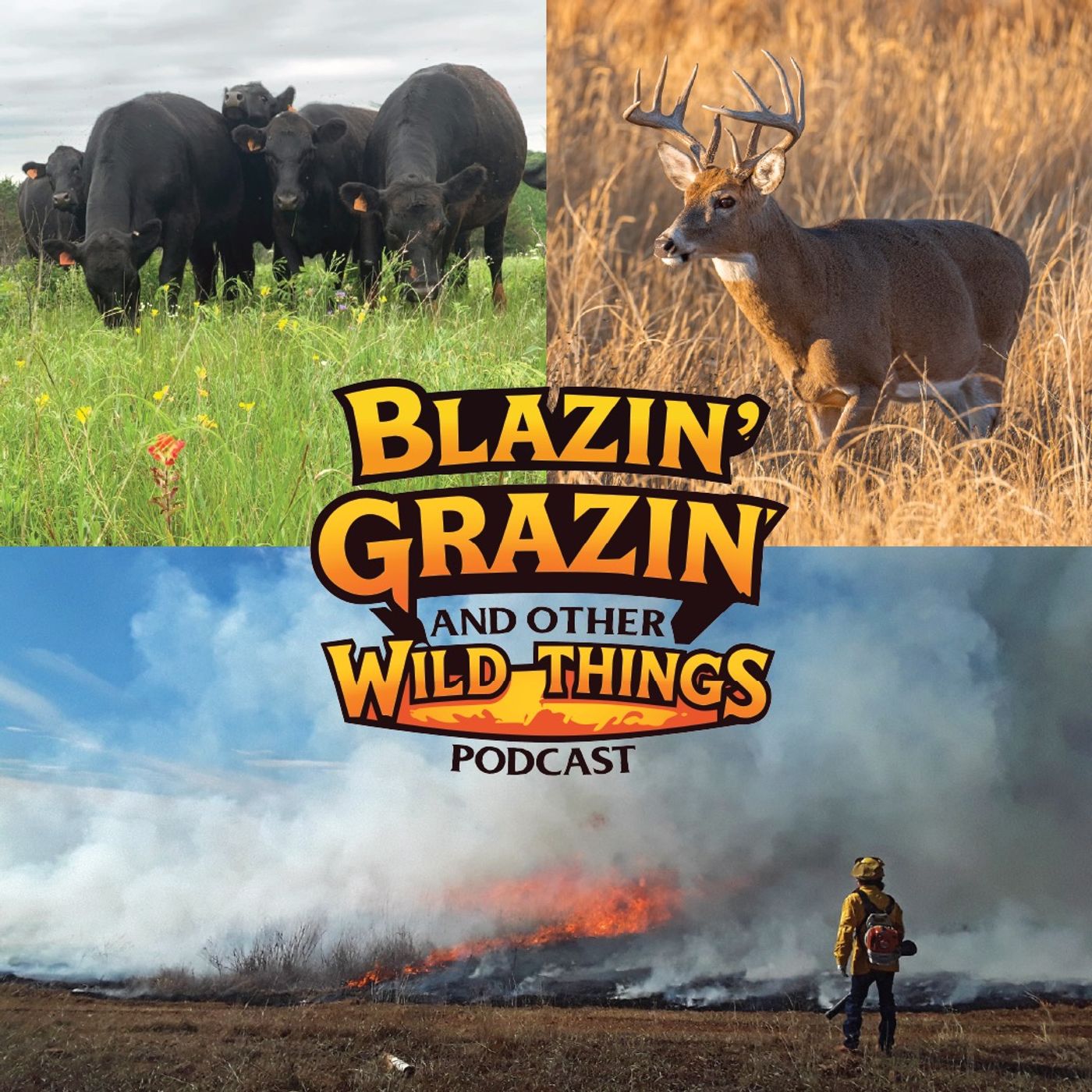Better Habitat on Private Land - BGWT 109
- Author
- Josh Richardson, Dr. Laura Goodman, Dr. Mark Turner, John Weir
- Published
- Mon 02 Jun 2025
- Episode Link
- https://www.blazingrazinwildthings.com/
In this episode of Blazin’ Grazin’ and Other Wild Things, Josh Richardson from the Oklahoma Department of Wildlife Conservation unpacks the challenges and triumphs of managing wildlife habitat on the state’s overwhelmingly privately owned lands.
With a background in both private and migratory species work, Josh brings a wealth of experience to the table—from quail tracking with GPS to helping landowners realistically match goals with land capacity.
He highlights the importance of passion, persistence, and partnerships in building thriving ecosystems.
Listeners will hear stories of grassroots conservation in action—friends clearing cedars, landowners creating firebreaks, and people even seeking to attract beavers.
Josh walks through how to tap into Oklahoma's Wildlife Habitat Incentive Program (WHIP), explains how free assistance works, and reminds us that no acreage is too small to make a difference.
Whether you’re new to land ownership or part of a multi-generational ranching family, this episode is filled with tools, tips, and inspiration for stewarding the land well.
Timestamps
00:02:00 – Introduction to Josh Richardson and his role
00:03:50 – Background in wildlife and education
00:05:17 – Quail research and hunter behavior
00:07:26 – Private land conservation challenges
00:10:26 – Most requested wildlife species
00:13:46 – Social dynamics and landowner collaboration
00:15:04 – Case study: local habitat success story
00:17:33 – Recommendations for new landowners
00:22:36 – WHIP and cost-share programs overview
00:25:23 – Practices covered and custom project examples
00:31:38 – Misconceptions about cedar as habitat
00:34:54 – Program accessibility and how to get involved
Key Takeaways
- 95% of Oklahoma's land is privately owned—making private landowners vital for wildlife conservation.
- The ODWC Private Lands team is small but highly active, providing free technical assistance statewide.
- Interest in wildlife-friendly land management is growing, especially among recreational landowners.
- Cost-share programs like WHIP support practices such as cedar removal, firebreaks, and wetland creation.
- Josh emphasizes the value of realistic goals and working with local context and constraints.
- Collaborative landowner efforts, like buddy systems for cedar cutting, can lead to large-scale impact.
- Misconceptions about cedar trees being prime wildlife cover persist but often mislead habitat goals.
- Absentee landowners can be easier to work with due to fewer entrenched practices or local norms.
- Even small-acreage landowners are eligible for help—no size limit for assistance.
- Good habitat work spreads through communities when neighbors see successful results.
Find all resources at BlazinGrazinWildThings.com
